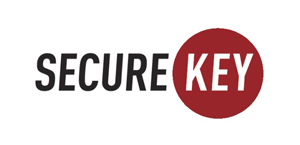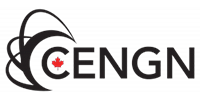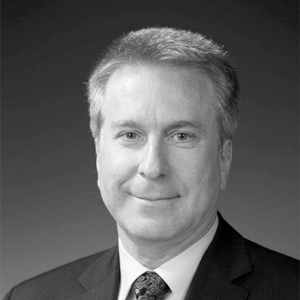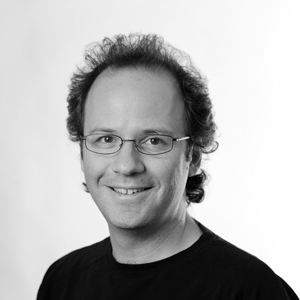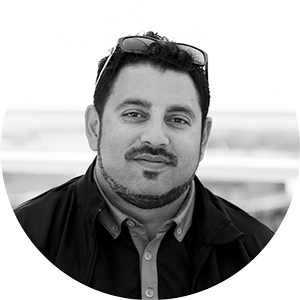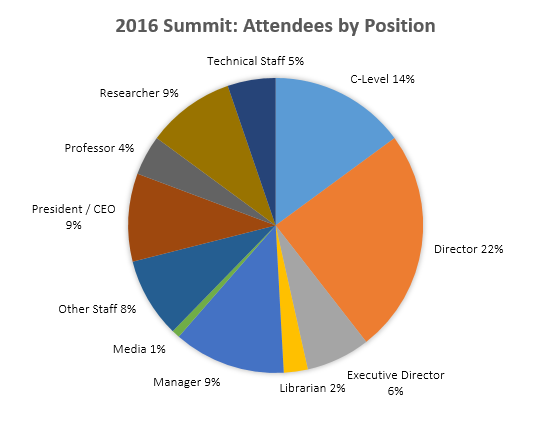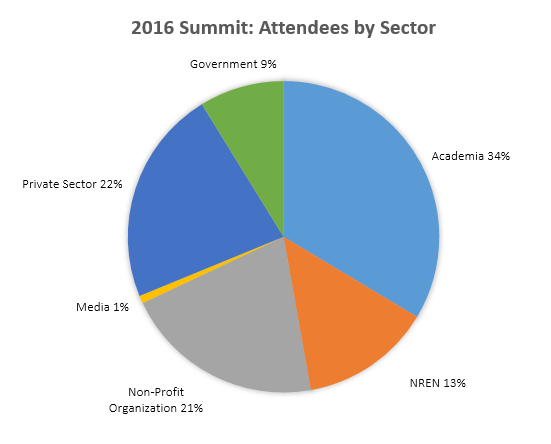CANARIE National Summit 2017
Science, Commerce, Security: Connected
November 14 - 15, 2017
In Canada’s 150th anniversary year, come together in our nation’s beautiful capital!
Engage with Canada’s leaders in research, private industry and government to explore the opportunities and challenges that exist in the interconnectedness of science, commerce, and security.
LEARN
Learn about ground-breaking scientific discoveries and ideas that will improve our lives and spark economic growth
COLLABORATE
Collaborate with new colleagues and friends across sectors, industries, and research disciplines
CONTRIBUTE
Contribute your thoughts and ideas to help shape Canada into a research and innovation powerhouse on the world stage
Take 2 minutes to see why you should attend the CANARIE National Summit:
2016 Attendee Feedback Highlights
“The variety and quality of speakers were great and always a highlight of the Summit. As is the chance to network with colleagues and friends.”“Breadth of perspective (not just hardware, not just science); networking, very engaging speakers.”“Wonderful speakers exploring data in different avenues.”“The highlight of the Summit for me is creating opportunities of collaboration across different fields of research.”“I liked the way in which the theme of research data was explored from a diverse set of perspectives.”Dr. Nina Tandon
CEO and Co-Founder of EpiBone, TED Senior Fellow
Nina Tandon is on the cutting edge of science: where sci-fi meets reality. She works on growing artificial hearts and bones that can be put into the body, and studies the new frontier of biotech: homes, textiles, and videogames made of cells. Named one of Fast Company’s Most Creative People in Business, and one of Foreign Policy’s 100 Leading Global Thinkers, she speaks on the future of healthcare and technology, and biology’s new industrial revolution.
Nina Tandon is CEO and co-founder of EpiBone, the world’s first company growing living human bones for skeletal reconstruction. She is the co-author of Super Cells: Building with Biology, a book that explores the new frontier of biotech. She is a TED Senior Fellow and Adjunct Professor of Electrical Engineering at the Cooper Union. She has a Bachelor’s in Electrical Engineering from the Cooper Union, a Master’s in Bioelectrical Engineering from MIT, a PhD in Biomedical Engineering, and an MBA from Columbia University. Her PhD research focused on studying electrical signaling in the context of tissue engineering, and has worked with cardiac, skin, bone, and neural tissue.
Tandon spent her early career in telecom at Avaya Labs and transitioned into biomedical engineering via her Fulbright Scholarship in Italy, where she worked on an electronic nose used to “smell” lung cancer. After completing her PhD, she consulted at McKinsey and Company, but since 2010 she has continued her work in tissue engineering. Nina has published 10 journal articles (cited > 300 times, H = 9) and six book chapters, and she has three patents. She’s been published in Nature Protocols and Lab on a Chip and has been featured on CNN and in Wired and the Guardian. She has spoken three times at TED and at the Milken and Bloomberg tech conferences. She was named one of the 100 Most Creative People in Business by Fast Company, a Crain’s 40 under 40 people who have achieved success in business before turning 40, and a World Economic Forum Tech Pioneer.
Keynote Address: Super Cells: Our Partners in Design | Tuesday, November 14 at 9:45 AM
(Please note that all Summit sessions will be presented in English)
From clay and stone to plastic and steel, basic building materials have always shaped our physical world and our sense of possibility. Now we are at the cusp of exploring and exploiting a new substance so groundbreaking that it challenges our very notion of what it means to build. This new material is: life. In this keynote, Nina Tandon takes us on an eye-popping tour of the tantalizing array of inventions already being created with nature’s elemental building block, the cell. Imagine the possibilities: broken bridges that have the ability to self-heal, one-stop body-shops for human body parts that render organ donation obsolete, living looms spinning high-tech fabrics, PETA-friendly porterhouse steaks—smarter, more adaptive technologies that may form our future arsenal as we confront looming challenges. With great enthusiasm, Tandon contends that we’re entering a new technological revolution, one in which we can create smarter technologies by making cells our partners in design—often on our own steam, in collaborative biohacking labs. And, she confronts the thorny questions that come with playing with the power of life.
Dr. Jean Luc Bérubé
President, Communications Research Centre
Dr. Jean Luc Bérubé became President of the Communications Research Centre in 2011, after serving 17 months as a research vice-president. When he joined CRC in 2009, he brought a proven track record in managing the human and technological issues inherent in complex telecommunications R&D projects.
Dr. Bérubé is overseeing three research priorities including a foresight function for Innovation, Science and Economic Development Canada (ISED), and direct client support R&D. Chief among CRC’s clients is ISED’s Spectrum and Telecommunications Sector, followed by other government organizations, industry and academia. Rounding out CRC’s research priorities is Grand Challenge R&D, tackling challenges of spectrum awareness, spectrum use and spectrum supply, all of which are central to meeting wireless demand for a modern digital economy.
Dr. Bérubé began his career in 1984 as a design engineer with Canadian Marconi Company. In 1993 he joined Nortel, leading teams designing advanced telecommunications equipment. He moved to Motorola in 1997, working to ensure that product planning and customer needs were tightly aligned. In 2000 Dr. Bérubé joined Altera Corporation, where he oversaw both applications and market development for the Canadian wireless and broadband network communications sectors.
Dr. Bérubé holds a Bachelor of Science degree from the University of New Brunswick (UNB), a Master of Applied Science degree from Montréal’s École Polytechnique, and a Doctorate from UNB, all in electrical engineering.
Taking Government Science to the Cloud | Tuesday, November 14 at 11:15 AM
(Please note that all Summit sessions will be presented in English)
How does the federal government manage the exponential growth in demand for advanced digital technologies to support research? Today, research increasingly involves Big Data analytics and visualization, access to remote tools and collaboration with national and global colleagues. To meet this demand, there is a current and growing need for highly scalable computing, state-of-the-art integration and collaboration software, and high-capacity storage. Dr. Jean Luc Bérubé will discuss how the government’s investment in cloud technologies are being leveraged to meet the demands of Canada’s research community.
Joni Brennan
President, Digital ID & Authentication Council of Canada (DIACC)
Joni serves as President of the Digital ID & Authentication Council of Canada (DIACC). Building upon 15 years of hands-on experience in Identity Access Management innovations and industry standards development, Joni helps the DIACC to fulfill its vision of organizing Canadian market forces to unlock digital identity and authentication (DIA) economic opportunities for all Canadians. Joni builds diplomatic collaboration relationships and formalizes strategic partnerships between organizations. She has participated in international organizational committees and has testified regarding trusted Identity and Access Management systems for the US Office of the National Coordinator for Health Information Technology Security and Privacy (ONC HITSP).
Digital Identity: The Needed Foundation for our Digital Economy | Wednesday, November 15 at 10:00 AM
(Please note that all Summit sessions will be presented in English)
Economic markets are driven by confidence. To achieve confidence in the digital interactions and relationships between people and organizations, a ubiquitous identity verification framework is crucial. A nationally scalable and interoperable digital identity ecosystem could result in significant economic growth for Canada. We can and must address this challenge in order to achieve a truly digital Canada. Joni will discuss how this vision is driving the establishment of the world’s first security- and privacy-by-design personal identity system, through the collaboration of Canadian governments, banks, higher-ed institutions, and technology providers.
Valarie Findlay
Research Fellow, Police Foundation (US)
Valarie has over 15 years’ experience in providing strategic, operational-level cyber security expertise to a range of federal initiatives in defence and public security. She is a research fellow with the Police Foundation (US), and her current research focuses on human factors derived from body-worn camera footage, a joint effort with a New Jersey police department and West Point. Valarie holds a Masters in Terrorism Studies and is a member of the NATO Assoc. of Canada, the Cyber Committee with the Armed Forces Communications and Electronics Association (AFCEA), the International Assoc. of Chiefs of Police (US), Women in Defence (WIDS) and the Canadian Network for Research on Terrorism, Security and Society.
A Cyber Retrospective and Peek into the Future | Wednesday, November 15 at 9:00 AM
(Please note that all Summit sessions will be presented in English)
Beginning with Web 1.0 and the hum and screech of modems, the advent of the publicly accessible Internet provided little indication of its future impacts to our day to day lives.
Evolving from what was really a new communications channel to the hyper-connected, multi-device world we know today, the Internet was the launch pad for other technologies that eliminated geographic boundaries in business and our social groupings and created multi-spectral human interactions in real-time. This was good – and bad. While the Internet and its watershed of technologies have transformed and enhanced our human activities, they have also introduced risks and threats, as well as unmitigated impacts to our fundamental behaviours. With the past thirty years having flown by and with major transformative technologies around the corner, Valarie will discuss how it is an opportune time to reflect on the dark parallel of cyber threats, their pivotal impacts, and what the future may hold.
Dr. Michael Geist
Canada Research Chair in Internet and E-commerce Law, University of Ottawa
Dr. Michael Geist is a law professor at the University of Ottawa where he holds the Canada Research Chair in Internet and E-commerce Law. Dr. Geist is a syndicated columnist on technology law issues with his regular column appearing in the Globe and Mail. He has received numerous awards for his work including the Kroeger Award for Policy Leadership and the Public Knowledge IP3 Award in 2010, the Les Fowlie Award for Intellectual Freedom from the Ontario Library Association in 2009, the Electronic Frontier Foundation’s Pioneer Award in 2008, CANARIE’s IWAY Public Leadership Award for his contribution to the development of the Internet in Canada and he was named one of Canada’s Top 40 Under 40 in 2003. In 2010, Managing Intellectual Property named him on the 50 most influential people on intellectual property in the world and Canadian Lawyer named him one of the 25 most influential lawyers in Canada in 2011, 2012 and 2013.
Dr. Geist serves on many boards, including the Canadian Legal Information Institute Board of Directors, the Canadian Internet Registration Authority Board of Directors, and the Electronic Frontier Foundation Advisory Board. He served on the CANARIE Board of Directors from 2010 – 2016.
The Dynamic Environment for Digital Privacy in Canada | Tuesday, November 14 at 3:45 PM
{Please note that all Summit sessions with be presented in English)
The law has long struggled to keep pace with the rapid change that comes with the Internet and new technologies. From the privacy implications of big data cross-border transfers to the jurisdictional challenges posed by a global network, law and policy frequently struggle to move at “Internet speed.” Yet despite the difficulties, politicians and policy makers increasingly find themselves at the heart of emerging policy issues, as they are asked to address the balance between privacy and surveillance, the benefits and risks of innovation and market disruption, and the place for Canadian priorities in digital policy. Michael will explore the emerging law and policy challenges, highlighting how all Internet users have the opportunity to help shape the digital privacy policy landscape.
Dr. Sylvain Martel
Director, NanoRobotics Laboratory, Polytechnique Montréal
Professor Sylvain Martel is at the cutting edge of nanotechnology, creating machines and robots with components the size of a nanometer – or one billionth of a metre. Working at the intersection of technology and medicine, Dr. Martel has created novel platforms for remote surgeries and cardiac mapping systems, and has developed new types of brain implants that can decode neuronal activities. Dr. Martel’s research group is credited with the first demonstration of the controlled navigation of an untethered object in the blood vessel of a living animal. He leads a world-renowned interdisciplinary team pushing the boundaries of navigable therapeutic agents and interventional platforms for cancer therapy.
Professor Martel is the Director of the NanoRobotics Laboratory at Polytechnique Montreal, holds a Tier 1 Canada Research Chair in Medical Nanorobotics, is a Fellow of the Canadian Academy of Engineering and is Chair of the IEEE Technical Committee on Micro-Nanorobotics and Automation.
Magnetic Fields & Bacteria: A Canadian Breakthrough in the War Against Cancer | Wednesday, November 15, 2017 at 11:15 AM
(Please note that all Summit sessions will be presented in English)
Magnetic fields generated by a special human-scale platform can now be used to transform a special type of bacteria into a computer-controlled, cancer-fighting nanorobot. Swarms of hundreds of millions of these computer-controlled bacteria, loaded with specialized agents, can be harnessed to fight cancer. They can reach deep inside tumors and detect active cancer cells, then deliver medical agents at strategic locations to deliver optimal therapeutic effects while minimizing toxicity. Since drug delivery is still considered as one of the major obstacles to achieve optimal therapeutic outcomes, this approach has the potential to revolutionize treatment for the vast majority of cancers.
Dr. Michele Mosca
Professor, Institute for Quantum Computing (IQC) and Cofounder, evolutionQ
Dr. Michele Mosca is a founder of the Institute for Quantum Computing (IQC) at the University of Waterloo, a Professor in the Department of Combinatorics & Optimization of the Faculty of Mathematics, and a founding member of Waterloo’s Perimeter Institute for Theoretical Physics. He is co-founder and Director of CryptoWorks21, a training program in quantum-safe cryptography. He also initiated the Quantum Cryptography Summer School for Young Scientists (QCSYS) at IQC.
He was a founder of the ETSI-IQC workshop series in Quantum-Safe Cryptography which brings together a broad range of stakeholders working toward globally standardized quantum-safe cryptography. He co-founded evolutionQ Inc. to provide services and products that enable organizations to evolve their quantum-vulnerable systems and practices to quantum-safe ones.
He obtained his doctorate in Mathematics in 1999 from the University of Oxford on the topic of Quantum Computer Algorithms.
His research interests include quantum computation, cryptographic tools designed to be safe against quantum technologies, and software tools for quantum information processing systems.
Dr. Mosca’s work is published widely in top journals, and he co-authored the respected textbook “An Introduction to Quantum Computing” (OUP). Dr. Mosca has won numerous academic awards and honours, including 2010 Canada’s Top 40 Under 40, the Premier’s Research Excellence Award (2000-2005), Fellow of the Canadian Institute for Advanced Research (CIFAR) since 2010, Canada Research Chair in Quantum Computation (2002-2012), University Research Chair at the University of Waterloo (2012-present), Queen Elizabeth II Diamond Jubilee Medal (2013) and Fr. Norm Choate C.R., Lifetime Achievement Award (2017).
Communication and Security in the Quantum Era | Tuesday, November 14 at 1:30 PM
(Please note that all Summit sessions will be presented in English)
We are entering a new era where emerging technologies are harnessing the power of quantum mechanics to perform tasks previously thought to be infeasible or impossible. Extraordinary new opportunities in communication, sensing and computation are just around the corner, but quantum computers will also shatter the foundations of current cybersecurity methodologies. It will take many years to prepare current systems to be resilient to quantum attacks. Professor Mosca will discuss both the opportunities and challenges that lie just around the corner in our quantum universe.
Ray Sharma
Founder and CEO of Extreme Venture Partners (EVP)
Ray Sharma is the founder and CEO of Extreme Venture Partners (EVP). EVP is a development venture firm, with unique accomplishments and investment returns. EVP’s investment fund is paired with a development organization to ensure due diligence and to enhance the return on investment. These development organizations include Extreme Innovations, a startup services specialty developer; Extreme Accelerator, a next-gen accelerator with a focus on bringing international startups to Toronto; and Xtreme Labs, Canada’s largest mobile app developer (at time of sale). In addition to his role at EVP, Ray is a member of the Ontario Judicial Council, a trustee of the Royal Ontario Museum, a member of the National Council of the CD Howe Institute, and is the founder and leader of national hackathon competitions including the Great Canadian Appathon, Canadian Open Data Experience (CODE), and Hackergals.
5G and its Impact to Applications | Tuesday, November 14 at 2:30 PM
(Please note that all Summit sessions will be presented in English)
Next-generation 5G mobile networks are touted as catalysts for the next revolution in mobile technology, as multi-gig speeds open up new opportunities for innovation. But speed increases are not the only story. As well as being 100 times faster than 4G, 5G will also deliver significant decreases in latency. In combination, these advances will rock the status quo in software development, user experience and applications. Ray, a seasoned entrepreneur and venture capitalist, will discuss how 5G networking will transform our mobile lives and become central to strategic investment decisions of venture capitalists in Canada and around the world.
Roni Zehavi
CEO, CyberSpark
Roni Zehavi is the CEO of CyberSpark, the industry initiative, created to advance research and development of cyber solutions in the Beer-Sheva region of Israel. He has more than 10 years of proven success in the entrepreneurial high-tech arena, integrating highly-innovative and multidisciplinary technologies into sellable products. His range of experience includes stewarding ideas through the development process into the marketplace.
His most recent company, “To-Be-Education,” is creating a platform upon which teachers and students can upload content that can be transformed into dilemma-based learning games with multiple users, facilitating the develop of global learners’ communities.
An experienced test pilot from ETPS UK and an Aeronautical Engineer from the Technion, Mr. Zehavi is a well-known expert in aviation professions, including operational, methodological and technological aspects. In 2004 Roni founded Rontal Applications, a leading provider of a 3D based application for simulations and real-time Command & Control systems. Under his leadership, the company has achieved successful results before being acquired by an American corporation.
Cybersecurity Sparking Research and Innovation | Wednesday, November 15 at 1:30 PM
(Please note that all Summit sessions will be presented in English)
Across the globe, ecosystems that bring together academia, industry and government operate to respond to cybersecurity threats and enable economic development opportunities. Roni will discuss how the “Ecosystem” concept, by which the essential stakeholders reside together and act as a coherent and unified entity, enables an innovative and stimulating environment, attracting entrepreneurs and global operators to “Spark” and “Create” together, addressing the multi-disciplinary manifold of our modern way of living.
Program
Please note: the CANARIE National Summit will be conducted in English.
All National Summit sessions, including meals and networking breaks will take place at the Westin Hotel.
| November 14, 2017 | ||
| 8:30 – 9:30 AM | Registration and Breakfast | |
| 9:30 – 9:45 AM | Opening Remarks | Jim Ghadbane Kathryn Anthonisen |
| 9:45 – 10:45 AM | Dr. Nina Tandon | |
| 10:45 – 11:15 AM | Networking Session | |
| 11:15 AM – Noon | Dr. Jean Luc Bérubé | |
| Noon – 1:30 PM | Lunch and Networking Session | |
| 1:30 – 2:30 PM | Dr. Michele Mosca | |
| 2:30 – 3:15 PM | Ray Sharma | |
| 3:15 – 3:45 PM | Networking Session | |
| 3:45 – 4:45 PM | Dr. Michael Geist | |
| 5:00 – 7:00 PM | CANARIE Reception | Daly’s Restaurant, Westin Hotel |
| November 15, 2017 | ||
| 8:00 – 9:00 AM | Registration and Breakfast | |
| 9:00 – 10:00 AM | Valarie Findlay | |
| 10:00 – 10:45 AM | Digital Identity: The Needed Foundation for our Digital Economy | Joni Brennan |
| 10:45 – 11:15 AM | Networking Sessions | |
| 11:15 AM – Noon | Magnetic Fields & Bacteria: A Canadian Breakthrough in the War Against Cancer | Dr. Sylvain Martel |
| Noon – 1:30 PM | Lunch and CANARIE Town Hall | |
| 1:30 – 2:30 PM | Roni Zehavi | |
| 2:30 – 3:00 PM | Closing Remarks | Jim Ghadbane |
Registration
All fees are in CAD and are subject to HST. Registration fees include all on-site meals throughout the Summit proceedings.
| CANARIE Members* | Non-Members | |
|---|---|---|
| Early Bird Rate (before September 24, 2017) | $299 | $349 |
| Standard Rate (September 25 – November 11, 2017) | $349 | $399 |
| Late Registration Rate (on or after November 12, 2017) | $449 | $499 |
*Check to see if your organization is a member of CANARIE.
Register NowSponsorship
Sponsors of the CANARIE Summit are able to strengthen their exposure to and collaboration with Canada’s research, education and innovation communities through extended networking sessions and opportunities that include brand promotion, exhibition, and the introduction of speakers.
The 2016 National Summit focused on Navigating our Data-Driven Future, and included diverse sessions on how open data is revolutionizing our approach to global disease outbreaks and climate science; how art can complement research data; and the policy and societal implications of the evolution of the internet. Attendees reported high satisfaction with the event, with an overall satisfaction assessment of 90%. An overwhelming majority of participants said they would recommend the Summit to colleagues.
| Platinum Sponsor $7,500* 1 available | Gold Sponsor $5,000* 3 available | Silver Sponsor $2,500* |
| *For CANARIE Members. Non-Member Price is $10,100. | *For CANARIE Members. Non-Member Price is $7,600. | *For CANARIE Members. Non-Member Price is $5,100. |
|
| Silver Sponsors may choose one of the following options: Option A
|
* CANARIE membership includes a $2,600 discount per year for a CANARIE program, i.e. Canadian Access Federation or Sponsorship. The member organization may select the CANARIE program to which its annual discount could be applied.
Should you wish to become a CANARIE member, please visit our page and complete the online form at: http://www.canarie.ca/members/become-a-member/.
How to Sponsor
Please complete a Sponsorship Agreement and send it to [email protected]. CANARIE’s Finance team will issue an invoice upon receipt of the Sponsorship Agreement.
If you have any questions about sponsorship opportunities, please contact:
Ela Yazdani
Director of Communications, CANARIE
[email protected] | 613-943-5432
Platinum Sponsor

Gold Sponsor
Silver Sponsors
Summit Partner
Travel & Accommodations
Andaz Ottawa Hotel
325 Dalhousie Street
Accommodations
Please note that due to Canada150 events taking place in Ottawa, hotel rooms are at a premium and will sell out quickly.
**The CANARIE block is sold out, but rooms are still available.**
Set in the heart of ByWard Market, a historic marketplace and presently an urban centre of chic boutiques, galleries, restaurants and nightlife, Ottawa’s newest hotel inspires exploration of Canada’s Capital city. The residentially styled guestrooms and public spaces reflect a sense of place, showcasing Canadian design, materials and motif. The modern high-rise hotel offers stunning views across the market to the Parliament Buildings and the scenic Gatineau Hills from the rooftop restaurant and lounge.
Online Booking: Andaz Ottawa
Westin Ottawa
11 Colonel By Drive
**The CANARIE block is sold out, but rooms are still available.**
The 4-star Westin Hotel is located in the heart of downtown Ottawa, on the famous Rideau Canal, and features stunning views of Parliament Hill and its beautiful surroundings. Spacious rooms and suites offer soothing decor and modern amenities.
Online Booking: Westin Ottawa
Travel to Ottawa
Canada 150
Ottawa is THE place to be in 2017! Canada celebrates 150 years as a nation–and Canadians are gathering in the Capital to join local residents in a year of celebration, featuring big, bold, immersive and moving experiences. Extend your stay in Ottawa and check out the city’s signature events that celebrate Canada’s 150th.
Local Dining
Ottawa is host to a wide range of restaurants to fit every palate. The city’s ethnic diversity will allow you to travel the tastes of the globe as you explore your surroundings. The Summit’s venue, the Westin Hotel, is within steps of the Parliament Buildings and a host of restaurants in Ottawa’s famous Byward Market.
Ottawa International Airport
Visit the Ottawa International Airport website to find flight information and rental car options. Transportation is also available directly from the terminal to downtown Ottawa via bus, taxi, limousine, or Uber.
VIA Rail
VIA Rail provides frequent daily service to Ottawa from most Canadian cities. Ottawa’s Central Station is a short bus or taxi ride from downtown.
Public Transit
OC Transpo provides comprehensive transit services to nearly one million people in Ottawa. The Westin Ottawa is easily accessible by OC Transpo from the airport and train station.
Contact
Registration Questions
Please email [email protected] or call 1-613-680-6950.
The Westin Ottawa
11 Colonel By Drive


